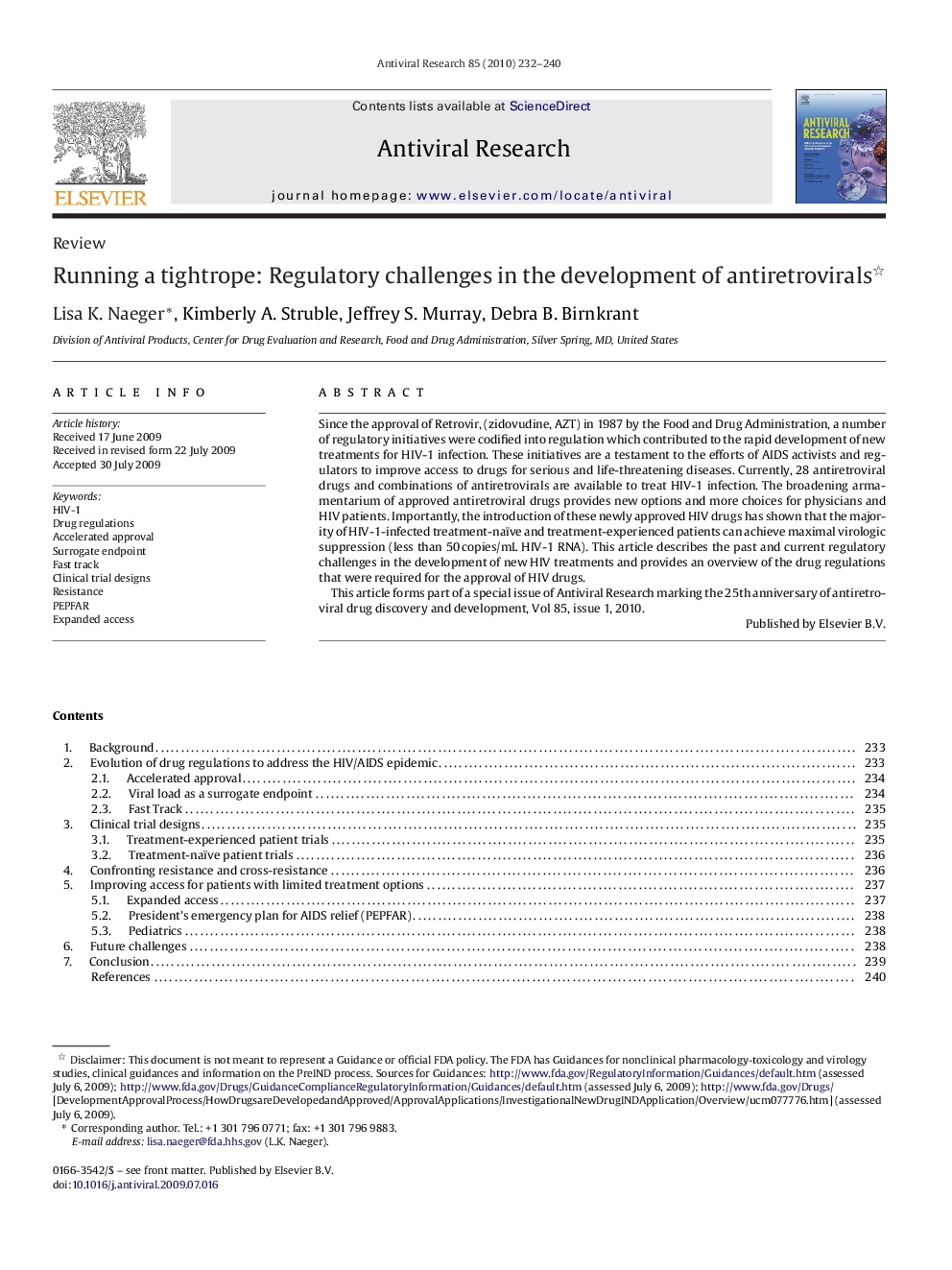| کد مقاله | کد نشریه | سال انتشار | مقاله انگلیسی | نسخه تمام متن |
|---|---|---|---|---|
| 2510787 | 1117985 | 2010 | 9 صفحه PDF | دانلود رایگان |

Since the approval of Retrovir, (zidovudine, AZT) in 1987 by the Food and Drug Administration, a number of regulatory initiatives were codified into regulation which contributed to the rapid development of new treatments for HIV-1 infection. These initiatives are a testament to the efforts of AIDS activists and regulators to improve access to drugs for serious and life-threatening diseases. Currently, 28 antiretroviral drugs and combinations of antiretrovirals are available to treat HIV-1 infection. The broadening armamentarium of approved antiretroviral drugs provides new options and more choices for physicians and HIV patients. Importantly, the introduction of these newly approved HIV drugs has shown that the majority of HIV-1-infected treatment-naïve and treatment-experienced patients can achieve maximal virologic suppression (less than 50 copies/mL HIV-1 RNA). This article describes the past and current regulatory challenges in the development of new HIV treatments and provides an overview of the drug regulations that were required for the approval of HIV drugs.This article forms part of a special issue of Antiviral Research marking the 25th anniversary of antiretroviral drug discovery and development, Vol 85, issue 1, 2010.
Journal: Antiviral Research - Volume 85, Issue 1, January 2010, Pages 232–240